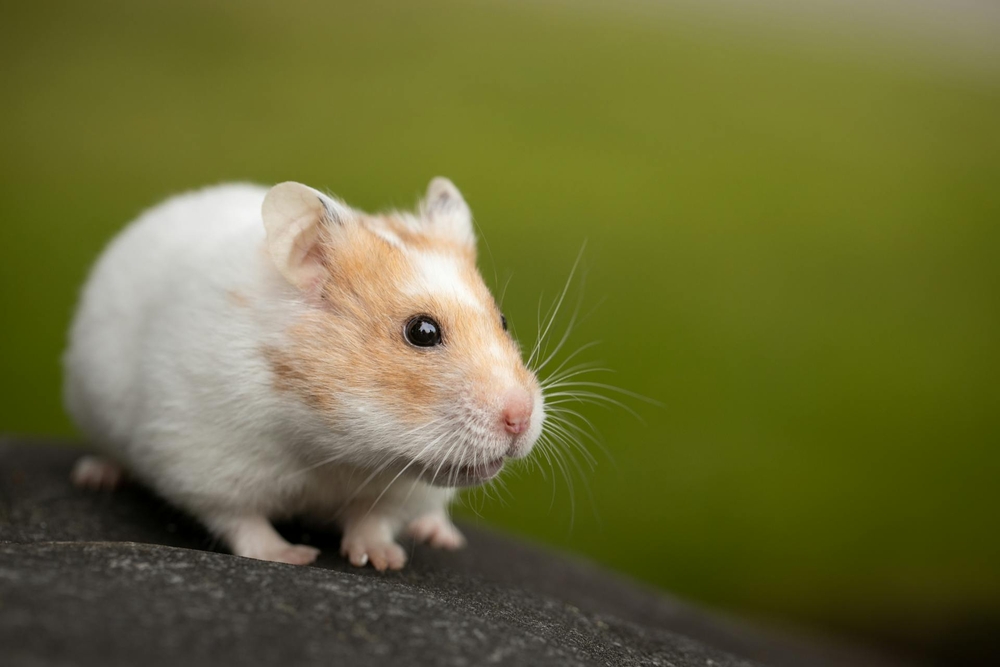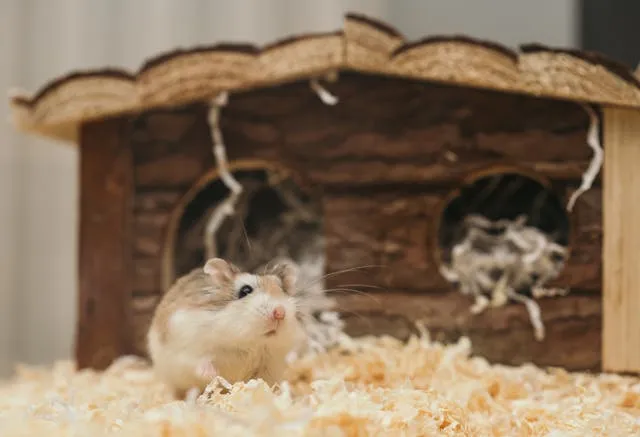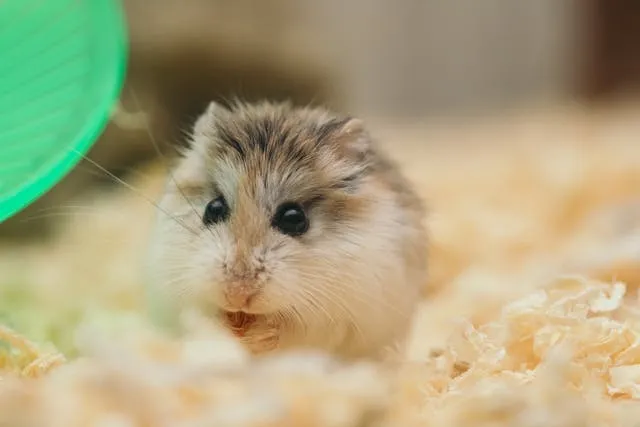Published
- 4 min read
My First Hamster: Basic Guide for New Owners

Having a hamster as a pet for the first time is an exciting experience! These small rodents are adorable, curious, and relatively easy to care for, making them an excellent choice for beginners in the pet world. However, like any living being, they need specific care to ensure their well-being. Below is a basic guide to help you take care of your first hamster and ensure it has a happy and healthy life.
Preparing Your Hamster’s Home
Before bringing your hamster home, it’s important to prepare an appropriate environment. Hamsters need a spacious cage that allows them to move freely. Opt for a barred cage with good ventilation or a glass terrarium with a lid, but make sure it has enough space for their activities.
What you need:
Substrate: Place a layer of substrate at the bottom of the cage, such as non-aromatic wood shavings (avoid pine or cedar) or recycled paper, which absorbs waste well and is comfortable for them.
Shelter: Hamsters are nocturnal animals and enjoy having a dark, safe place to sleep. Provide them with a house or cave where they can rest during the day.
Exercise wheel: Hamsters are very active animals, and an exercise wheel is essential for them to burn off energy. Make sure it’s the right size and has a solid surface to prevent injury.
Toys and tunnels: Adding toys, tunnels, and tubes will keep your hamster entertained and mentally stimulated. They love to explore and climb, so these accessories are essential.

House for a hasmter.
Feeding and Nutrition
A balanced diet is key to keeping your hamster healthy. Their diet should consist of a mix of commercial hamster food, including seeds, grains, and fortified pellets.
Feeding tips:
Fresh fruits and vegetables: You can complement their diet with small amounts of fresh fruits and vegetables, such as apples, carrots, and spinach. Be sure to wash the food well and remove any uneaten portions to avoid spoilage.
Proteins: Occasionally, you can offer small portions of protein, such as boiled egg or chicken, but only as an occasional supplement.
Fresh water: Ensure they always have access to fresh water. Use a bottle with a metal spout to keep the water clean and prevent spills.

Hasmter eating.
Daily Care and Maintenance
Keeping the cage clean is crucial to your hamster’s health. Clean the substrate at least once a week and wash the cage and accessories with water and mild soap. It’s also important to check the condition of their food and water daily and remove any fresh food leftovers to prevent bacteria growth.
Interaction and handling:
Hamsters are generally docile, but they can be a bit nervous at first. Give them time to adjust to their new home before trying to handle them. When you start interacting with your hamster, do so gently and in a calm environment. Place your hand in the cage and allow them to approach and sniff you before attempting to pick them up. Avoid handling them while they’re sleeping, as they may be startled and bite if surprised.
Health and Well-being
Regularly observe your hamster to ensure they are healthy. A healthy hamster has a soft coat, bright eyes, and is active. If you notice signs of illness, such as loss of appetite, lethargy, difficulty breathing, or diarrhea, it’s important to consult a veterinarian specializing in exotic animals.
Conclusion
Caring for your first hamster can be a rewarding and fun experience. With proper preparation and a commitment to daily care, your hamster can enjoy a long and healthy life by your side. Remember that each hamster has its own personality, so take the time to get to know your new friend and build a special bond with them. Enjoy this new adventure as a hamster owner!
Thank you for taking the time to read this article. We hope you found it helpful!
This article solely reflects the author’s opinion and should not be taken as professional advice.